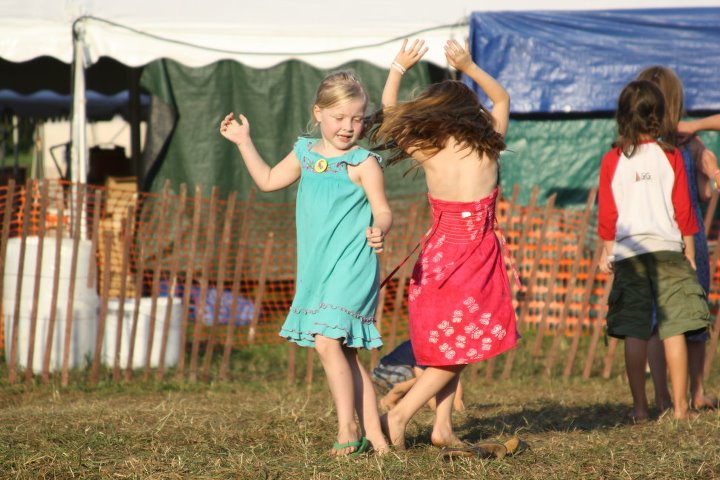Covered In Folk: Blaze Foley
(The Avett Brothers, Sharon Van Etten, Timbuk 3, Ben Haggard & more!)

As the posthumous subject of songs penned and performed by Townes Van Zandt, Lucinda Williams, and other luminaries from his own era, it’s not hard to see the influence Blaze Foley had on his scene, especially in the context of Van Zandt, with whom he traveled and performed frequently. But if you only faintly recognize his name, it is because the Texas singer-songwriter was the Daniel Johnston of his time and place: a drifter and drinker, troubled yet iconoclastic, earnest and yet just plumb weird; a difficult and often lost soul who wore duct tape on his cowboy boots and lived in a tree, wrote plain, plaintive songs about big cheeseburgers and high school heroes, got kicked out of the Kerrville Folk Festival, and died at the end of a gun in mysterious circumstances at the age of 39 over 25 years ago.
In no small part because the sandpaper influence of his personality made recording opportunities scant and scattered, if Foley is remembered, it is because of his songcraft, not his recordings. Tracking Foley’s songbook is possible, mostly, thanks to Live at the Austin Outhouse, a 15-track “greatest hits” performance from the month before his death, once out of print but rereleased at the turn of the century to find a new audience looking for the roots and branches of their underground heritage.
But this small collection contains the seeds of greatness realized. A true poet, unafraid of both the political and the personal lens, whose simple, direct images spoke loudly to universal themes of love, loneliness, leaving and loss, Foley was in many ways a songwriter’s songwriter, famously covered in his lifetime by the likes of John Prine, Lyle Lovett, Merle Haggard and Willie Nelson, with If I Could Only Fly cited by Haggard upon his first listen as ““the best country song I’ve heard in fifteen years.” And although finding these rare original performances, to seep into them as their fumbling, couch-syrup tones rise and fall, is a visceral experience, well worth pursuit, it is Foley’s songwriting, and its continued influence – both beyond his lifespan, and beyond the world of Texas country – that interests us today.
Unsurprisingly, with a few exceptions, Foley’s songs are difficult to interpret, making coverage rare. But happily, those who have chosen to take on the challenge of reimagining them do so without trivializing, giving the lyrics and chords new voice and clarity through interpretations inevitably crisper, and more deliberately nuanced, then their original raw and dirty forms. Read on for our favorite next-generation coverage, as growled and soft-shoe traditionalists and indiefolk reinventionists alike take on the Blaze Foley songbook in all its weird, wonderful, yet still prescient north-by-northwest madness.
Covered In Folk: Blaze Foley [zip!]
 We start today with a bit of pianissimo whisperfolk with tense undertones and swells from Bristol-bred alt-folk songwriter
We start today with a bit of pianissimo whisperfolk with tense undertones and swells from Bristol-bred alt-folk songwriter  Like a fragile field recording, this amateur Bandcamp find – a secondhand cover, built by stripping down Halsey’s dreamy indie electropop b-side – lingers in the psyche, a haunting heartmurmur heard long after the last gently plucked note fades. Kudos to Bostonian singer-songwriter
Like a fragile field recording, this amateur Bandcamp find – a secondhand cover, built by stripping down Halsey’s dreamy indie electropop b-side – lingers in the psyche, a haunting heartmurmur heard long after the last gently plucked note fades. Kudos to Bostonian singer-songwriter  And now for something completely different: a refreshing acoustic-swing jazzfunk rock take on a familiar Fleetwood Mac classic from husband and wife duo
And now for something completely different: a refreshing acoustic-swing jazzfunk rock take on a familiar Fleetwood Mac classic from husband and wife duo  A little pop, precisely done; a little jazz in the slippery tone, and more than a little soul have us falling in love with
A little pop, precisely done; a little jazz in the slippery tone, and more than a little soul have us falling in love with  It’s over a year old, but a failed attempt at focusing a coverlook lens on the songbook of The 1975 leaves us nonetheless with this dear, raw, gently poppy track from Manchester singer-songwriter
It’s over a year old, but a failed attempt at focusing a coverlook lens on the songbook of The 1975 leaves us nonetheless with this dear, raw, gently poppy track from Manchester singer-songwriter  LA-based producer/vocalist duo
LA-based producer/vocalist duo 
 Flash forward a decade, and here we are: one among a million paying tribute to the day the towers slowly fell. The world is faster, now, and more divided – two trends which spin into each other like two sides of a gyroscope, pulling at our psyches. I commute 40 minutes every morning to work with students for whom disaster is always personal and everpresent: homelessness, street violence, unemployment, the looming promise of dead-end futures. Some days it seems the only thing they own is their image, and who can fault them, then, for being so brash and sassy, peacocks with razor talons, angry at the world and taking it out on themselves without even realizing it.
Flash forward a decade, and here we are: one among a million paying tribute to the day the towers slowly fell. The world is faster, now, and more divided – two trends which spin into each other like two sides of a gyroscope, pulling at our psyches. I commute 40 minutes every morning to work with students for whom disaster is always personal and everpresent: homelessness, street violence, unemployment, the looming promise of dead-end futures. Some days it seems the only thing they own is their image, and who can fault them, then, for being so brash and sassy, peacocks with razor talons, angry at the world and taking it out on themselves without even realizing it.  It’s been seven years, now, since I left the prep school; seven years since we lived side by side with the kids in the dormitories, and shared the pain and joys, the proms and punishments of night and day with the smart and well-bred, the resourced and the right-raised. But I often think of that day when I’m in my inner city classroom, working with the children of the downtrodden, the recent immigrants who don’t speak English, the hopeless – all categories of children whose pain is everpresent and real, and who would never have sat in silence, or even identified with the children of the towers.
It’s been seven years, now, since I left the prep school; seven years since we lived side by side with the kids in the dormitories, and shared the pain and joys, the proms and punishments of night and day with the smart and well-bred, the resourced and the right-raised. But I often think of that day when I’m in my inner city classroom, working with the children of the downtrodden, the recent immigrants who don’t speak English, the hopeless – all categories of children whose pain is everpresent and real, and who would never have sat in silence, or even identified with the children of the towers. 






 Far be it from me to claim some special bond between Carter and myself, despite the proximity of life and death which we shared; I was only privileged enough to see Dave and Tracy once in concert, and now it is too late.
Far be it from me to claim some special bond between Carter and myself, despite the proximity of life and death which we shared; I was only privileged enough to see Dave and Tracy once in concert, and now it is too late.  Tracy Grammer continues to perform the Dave Carter songbook, most often with local hero and master instrumentalist Jim Henry by her side. In 2005, she released
Tracy Grammer continues to perform the Dave Carter songbook, most often with local hero and master instrumentalist Jim Henry by her side. In 2005, she released